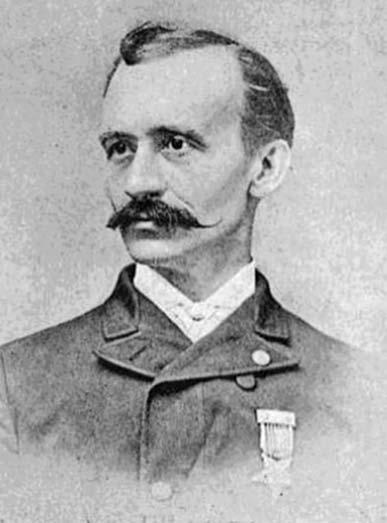1 Ghosts of the Ripper Wake On the night of Sunday, October 28, 1888, Sarah Tanner, a 53-year-old married woman of 49 Bowsell Street, Bow Common, was charged on a warrant for fortune-telling. On the following day, Detective Sergeant Breed of K Division stated before Thames Police Court magistrate Mr. Lushington that during the last fortnight he and a Sergeant Duck had kept surveillance on the prisoner’s house. The police had diligently employed the services of Mrs. Sarah Ann Bromley and her daughter of Poplar as decoys in the operation. The Bromleys proceeded to Tanner’s house ostensibly for a “reading” and to obtain evidence after letters of complaint were sent to the commissioner of the Metropolitan Police, Sir Charles Warren. When Breed and Duck arrived to apprehend the prisoner they found in a desk in the front parlor two packs of playing cards, the popular Victorian book of divination Napoleon’s Book of Fate,1 and a number of pieces of paper on which were written dates. Tanner said they were dates for the people to watch out for. The papers were included with the exhibits presented to the court in the case against her. Mr. George Hay Young in Tanner’s defense before the magistrate argued that it was difficult to accept that people still believed in fortune-telling. Detective Inspector R. Wildey, prosecuting on behalf of the Criminal Investigation Department, gave evidence that the accused told Mrs. Bromley that her mother, who had lived for over ninety years, did nothing but fortune-telling for a living. Sarah Tanner charged a respectable 6d for her services and it seemed a modest source of income especially for women if undetected. Little more than half that sum would have bought a destitute prostitute in the East End a bed for the night in a Common Lodging House, so fortune-telling was hardly a significant part of the Victorian black market economy or means of survival. Mr. Lushington, however, sentenced Sarah Tanner to the minimum one month’s imprisonment with hard labor for acquiring money by telling people “utter nonsense.”2 She was lucky for now, but the court and police were still expected to uphold the law of the land despite the added burden of the Whitechapel murders investigation that was unfolding nearby. Detective Inspector Frederick George Abberline, in charge of inquiries into the Whitechapel murders from September 1888 to March 1889, was also investigating criminal breaches of fortune-telling. Abberline, along with Detective Sergeant Stephen White3 and Constable Henry Payne, all of the Whitechapel H Division, arrested the serial fortune-teller James 11
Issuu converts static files into: digital portfolios, online yearbooks, online catalogs, digital photo albums and more. Sign up and create your flipbook.








